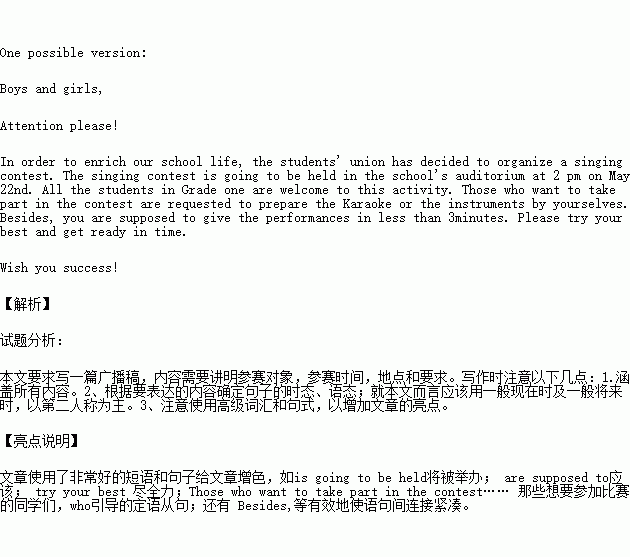题目内容
应用文写作
为了丰富校园生活,你校学生会将举办歌唱比赛,请根据以下信息用英语写一篇广播稿。
1. 参加对象:全体高一学生
2. 比赛要求:表演限时3分钟,自带伴奏录音(Karaoke)或乐器
3. 比赛时间:5月22日 下午2点
4. 比赛地点:学校礼堂(auditorium)
注意:1. 词数80左右(开头和结尾已给出,但不计入总词数)
2. 可以适当增加细节, 以使行文连贯。
Boys and girls,
Attention please!
In order to enrich our school life, the students’ union______________________________
______________________________________________________________________________________
______________________________________________________________________________________
______________________________________________________________________________________
______________________________________________________________________________________
______________________________________________________________________________________
______________________________________________________________________________________
Wish you success!

